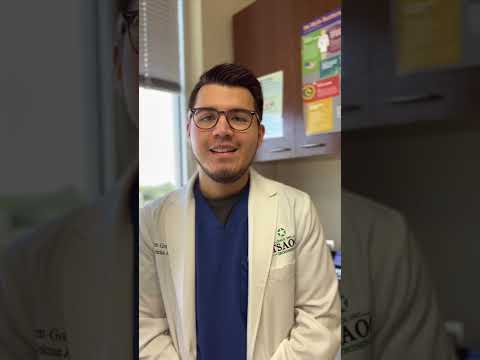Exploring the World of Healthcare Science: Jobs and Salaries

Healthcare Science Job Description Template
Healthcare Science is a branch of healthcare that focuses on the application of scientific knowledge and technology to improve patient care and outcomes. Healthcare Science professionals work in various roles within the healthcare sector, including clinical laboratory scientists, biomedical scientists, clinical physiologists, and healthcare science assistants. Clinical laboratory scientists are responsible for performing a wide range of laboratory tests, analyzing the results, and providing accurate and timely information to healthcare professionals. They may work in areas such as biochemistry, hematology, immunology, or microbiology. These professionals play a crucial role in the diagnosis, treatment, and monitoring of diseases. Biomedical scientists are involved in the investigation and analysis of human samples to aid in the diagnosis and treatment of diseases. They work closely with other healthcare professionals to interpret test results and provide recommendations for patient care. Biomedical scientists often specialize in areas such as histopathology, clinical immunology, or genetics. Clinical physiologists are involved in the assessment and diagnosis of a range of physiological conditions. They use various techniques and equipment to measure and analyze physiological parameters, such as heart and lung function, to aid in the management of patients with cardiovascular or respiratory diseases. Healthcare science assistants provide support to healthcare professionals in various settings, such as hospitals or research laboratories. They may assist with sample collection, equipment maintenance, and data entry. These assistants play a crucial role in ensuring the smooth operation of healthcare science services. Two important qualities for healthcare science professionals are accuracy and attention to detail. They must perform tests and analyses with precision to ensure accurate results. Attention to detail is essential in interpreting and analyzing data, as well as in identifying any abnormalities or errors that may impact patient care. In conclusion, healthcare science professionals play a vital role in the delivery of quality healthcare. Their expertise and skills in scientific analysis and technology contribute to accurate diagnosis, effective treatment, and improved patient outcomes.Healthcare Science Responsibilities
Healthcare Science Requirements
How Much Does A Healthcare Science Make?
Healthcare Science Salary
| Job Title | Median Annual Salary |
|---|---|
| Medical Scientist | $88,790 |
| Biomedical Engineer | $91,410 |
| Pharmacist | $128,090 |
| Medical and Health Services Manager | $100,980 |
| Nurse Practitioner | $111,680 |
Healthcare science offers various job opportunities with competitive salaries. The median annual salaries for some healthcare science professions are as follows:
- Medical Scientist: $88,790
- Biomedical Engineer: $91,410
- Pharmacist: $128,090
- Medical and Health Services Manager: $100,980
- Nurse Practitioner: $111,680
These salaries may vary depending on factors such as experience, location, and education level. It’s important to note that healthcare science careers not only offer financial stability but also the opportunity to make a positive impact on people’s lives.
Healthcare Science Salaries by Country
Top Paying Countries for Healthcare Science
| Country | Average Salary (USD) |
|---|---|
| United States | 82,000 |
| Switzerland | 75,000 |
| Australia | 70,000 |
| Germany | 65,000 |
| Canada | 60,000 |
Healthcare Science professionals in the United States earn the highest average salary of $82,000. Switzerland follows closely with an average salary of $75,000, while Australia, Germany, and Canada offer average salaries of $70,000, $65,000, and $60,000 respectively. These countries provide lucrative opportunities for individuals seeking high-paying careers in the healthcare science field.
A video on the topic Healthcare Science
Video Source : Study HallInterview Questions for Healthcare Science
1. What is healthcare science?
Healthcare science is a field that combines scientific knowledge and skills with healthcare practice. It involves the application of scientific principles and techniques to improve patient care, diagnosis, and treatment.
2. What are the different areas of healthcare science?
There are several different areas of healthcare science, including medical physics, clinical engineering, biomedical science, cardiac science, and respiratory and sleep science.
3. What is the role of a healthcare scientist?
A healthcare scientist plays a crucial role in the healthcare system by conducting scientific investigations, providing technical support, and analyzing patient samples. They also contribute to research and development within their respective field.
4. What skills are required to work in healthcare science?
Skills required to work in healthcare science include strong analytical and problem-solving skills, attention to detail, good communication skills, and the ability to work well in a team. Additionally, knowledge of scientific principles and laboratory techniques is essential.
5. How does healthcare science contribute to patient care?
Healthcare science contributes to patient care by providing accurate and timely diagnostic results, developing new treatment methods, and ensuring the safety and effectiveness of medical equipment and devices. It plays a vital role in improving patient outcomes and enhancing the quality of healthcare.
6. What are some of the latest developments in healthcare science?
Some of the latest developments in healthcare science include advancements in genetic testing and personalized medicine, the use of artificial intelligence and machine learning in healthcare diagnostics, and the development of innovative medical devices and technologies.
7. How does healthcare science contribute to public health?
Healthcare science contributes to public health by conducting research and surveillance to identify and prevent diseases, developing public health policies and guidelines, and providing scientific expertise to support healthcare initiatives and programs.
8. What are the ethical considerations in healthcare science?
Ethical considerations in healthcare science include ensuring patient confidentiality and privacy, obtaining informed consent for research and testing, maintaining the highest standards of professionalism and integrity, and ensuring the equitable distribution of healthcare resources.
9. What are the career opportunities in healthcare science?
There are a wide range of career opportunities in healthcare science, including roles such as biomedical scientist, clinical scientist, medical physicist, healthcare scientist practitioner, and research scientist. These roles can be found in hospitals, research institutions, private laboratories, and government agencies.
10. How can someone pursue a career in healthcare science?
To pursue a career in healthcare science, one typically needs a relevant degree in a scientific discipline, followed by specialized training and certification in their chosen area of healthcare science. Gaining practical experience through internships or research projects can also be beneficial.






